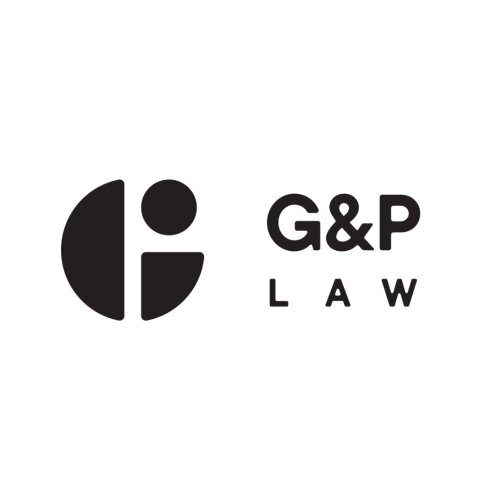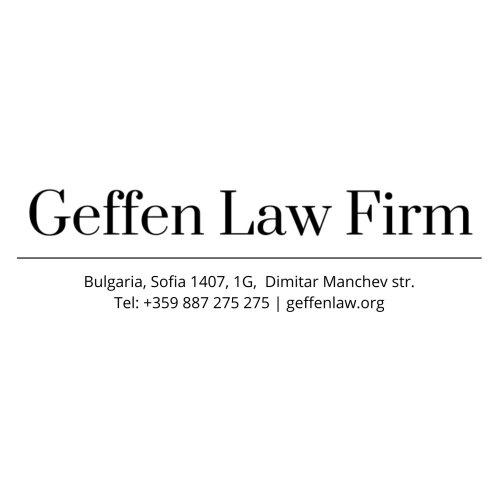Best Structured Finance Lawyers in Sofia
Share your needs with us, get contacted by law firms.
Free. Takes 2 min.
List of the best lawyers in Sofia, Bulgaria
About Structured Finance Law in Sofia, Bulgaria
Structured finance is a specialized area of financial law focusing on the use of complex financial instruments and legal structures to facilitate major funding or risk management needs. In Sofia, Bulgaria, structured finance often involves the organization, documentation, and execution of transactions such as securitizations, collateralized debt arrangements, project finance, and asset-backed securities. These processes allow companies, banks, and financial institutions to raise capital, manage risk, and optimize their balance sheets. Given the sophistication and complexity involved, the legal framework for structured finance in Bulgaria continues to evolve in line with both European Union (EU) regulations and local innovations in the Bulgarian financial sector.
Why You May Need a Lawyer
There are several common situations where you might need a lawyer specializing in structured finance in Sofia:
- When structuring or participating in asset-backed securities, collateralized loan obligations, or other structured finance products.
- If you are engaged in cross-border transactions or need to comply with both Bulgarian and EU regulations.
- During due diligence or when evaluating complex financial agreements with multiple parties.
- If your business is seeking financing through securitization, factoring, or other similar mechanisms.
- When reviewing or negotiating contracts with investors, lenders, or borrowers involving elaborate legal structures.
- Before entering into derivatives, swaps, or other risk mitigation agreements as part of your financial strategy.
- During regulatory investigations or inquiries regarding compliance with Bulgarian or EU laws.
- In cases of disputes or enforcement proceedings related to structured finance deals.
Local Laws Overview
Structured finance activities in Sofia are governed by a combination of Bulgarian commercial law, the Markets in Financial Instruments Act (MiFID II implementation), the Law on Obligations and Contracts, the Law on Credit Institutions, and sector-specific regulations from the Financial Supervision Commission (FSC) and the Bulgarian National Bank (BNB). Compliance with European Union regulations is crucial, especially directives and guidance from the European Securities and Markets Authority (ESMA) regarding transparency, investor protection, and risk management. Structures such as securitizations, project finance, and syndicated lending must adhere to stringent disclosure requirements, due diligence standards, and often require registration or notifications with local authorities. Familiarity with insolvency rules, capital markets requirements, and cross-border tax implications is also vital in the Bulgarian context.
Frequently Asked Questions
What is structured finance and how is it used in Bulgaria?
Structured finance refers to complex financial arrangements designed to manage risk, raise capital, or improve financial liquidity. In Bulgaria, it is primarily used by banks, large corporations, and investment firms to structure deals such as securitizations, project finance, receivables financing, and asset-backed loans.
Do Bulgarian laws align with European Union structured finance regulations?
Yes, Bulgarian laws are harmonized with EU regulations regarding structured finance. Market participants must comply with EU directives such as MiFID II and the EU Securitization Regulation, alongside local legislative requirements.
Who regulates structured finance activities in Sofia?
The primary authorities are the Financial Supervision Commission, which oversees non-banking financial markets, and the Bulgarian National Bank, which supervises banks and payment institutions. Certain activities may also require notification or licensing from these bodies.
Can foreign investors participate in Bulgarian structured finance transactions?
Yes, foreign investors can engage in structured finance in Bulgaria, subject to compliance with local and EU regulations, and sometimes with additional reporting or licensing requirements based on the transaction type.
What are the most common types of structured finance transactions in Sofia?
Common transactions include securitization of receivables, project financing for infrastructure, syndicated loans, factoring, and issuance of asset-backed securities.
What documentation is typically required for structured finance deals?
Documentation may include complex contracts, prospectuses, loan and security agreements, disclosures, risk assessments, and regulatory filings tailored to the specific structure and parties involved.
Are there any tax implications for structured finance transactions in Bulgaria?
Yes, transactions may have significant tax implications regarding VAT, withholding tax, and corporate tax. Consulting with a lawyer or financial advisor is recommended to navigate local and cross-border tax considerations.
Is court approval required for all structured finance transactions?
Court approval is generally not required for standard transactions but may be necessary in certain judicial restructuring or insolvency scenarios. Regulatory approval or registration is more commonly required.
What are the main risks involved in structured finance?
Risks include credit and counterparty risk, regulatory compliance risk, operational risk, insolvency risk, and market risk. Legal advice helps identify, allocate, and manage these risks effectively.
How can a lawyer help with due diligence in structured finance?
A lawyer ensures all parties meet their legal obligations, verifies assets and collateral, checks for compliance with regulations, reviews contracts for enforceability, and identifies potential legal or regulatory issues.
Additional Resources
For individuals seeking further information or assistance with structured finance in Sofia, the following resources may be helpful:
- Financial Supervision Commission (FSC) - Bulgaria's primary financial market regulator
- Bulgarian National Bank (BNB) - Regulator of banking and financial institutions
- Bulgarian Stock Exchange - Information on capital markets and securities
- Official Gazette of the Republic of Bulgaria - Source for updated legal texts
- Bulgarian Association of Commercial Banks - Industry updates and best practices
- International law firms in Sofia with dedicated structured finance practices
- Legal aid services specializing in financial and commercial law
Next Steps
If you are considering engaging in structured finance activities in Sofia, Bulgaria, or need legal support for an ongoing transaction, consider taking the following steps:
- Define your business objectives and the type of transaction or structure you are seeking.
- Gather all relevant documents and information such as contracts, business plans, and financial statements.
- Consult with a lawyer or law firm that has expertise in structured finance and Bulgarian law to discuss your needs.
- Verify that your legal advisor has experience with similar transactions and understands both local and EU regulations.
- Prepare for comprehensive due diligence and regulatory compliance checks as part of the process.
- Monitor for updates in regulation or best practices that may affect your transaction.
Legal guidance is essential in structured finance to ensure compliance, mitigate risk, and facilitate successful transactions. Take proactive steps and seek advice early to safeguard your interests and achieve your financial goals.
Lawzana helps you find the best lawyers and law firms in Sofia through a curated and pre-screened list of qualified legal professionals. Our platform offers rankings and detailed profiles of attorneys and law firms, allowing you to compare based on practice areas, including Structured Finance, experience, and client feedback.
Each profile includes a description of the firm's areas of practice, client reviews, team members and partners, year of establishment, spoken languages, office locations, contact information, social media presence, and any published articles or resources. Most firms on our platform speak English and are experienced in both local and international legal matters.
Get a quote from top-rated law firms in Sofia, Bulgaria — quickly, securely, and without unnecessary hassle.
Disclaimer:
The information provided on this page is for general informational purposes only and does not constitute legal advice. While we strive to ensure the accuracy and relevance of the content, legal information may change over time, and interpretations of the law can vary. You should always consult with a qualified legal professional for advice specific to your situation.
We disclaim all liability for actions taken or not taken based on the content of this page. If you believe any information is incorrect or outdated, please contact us, and we will review and update it where appropriate.















